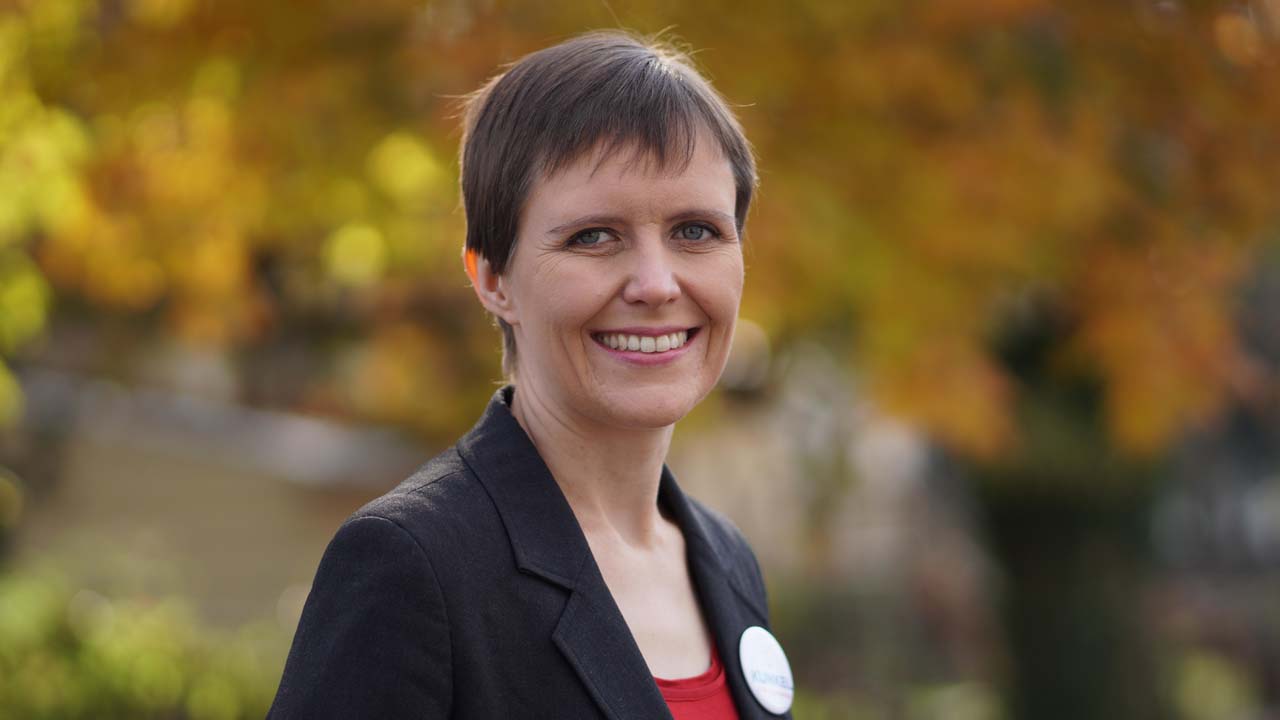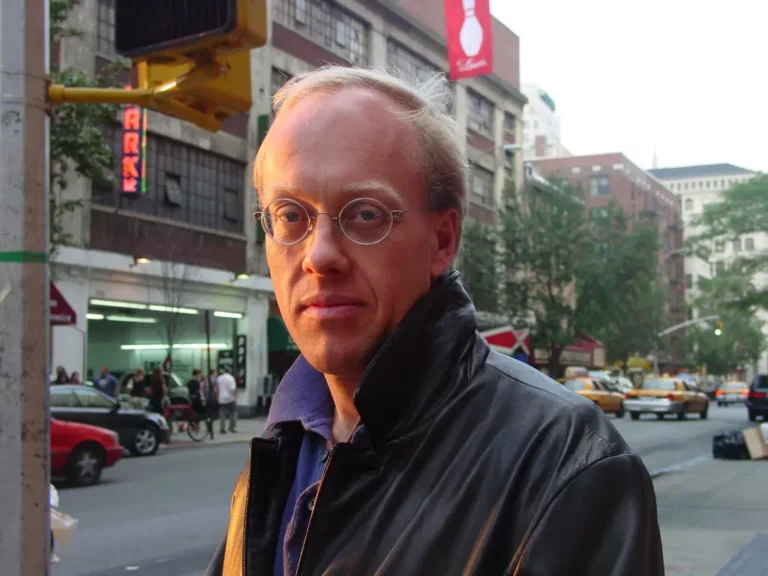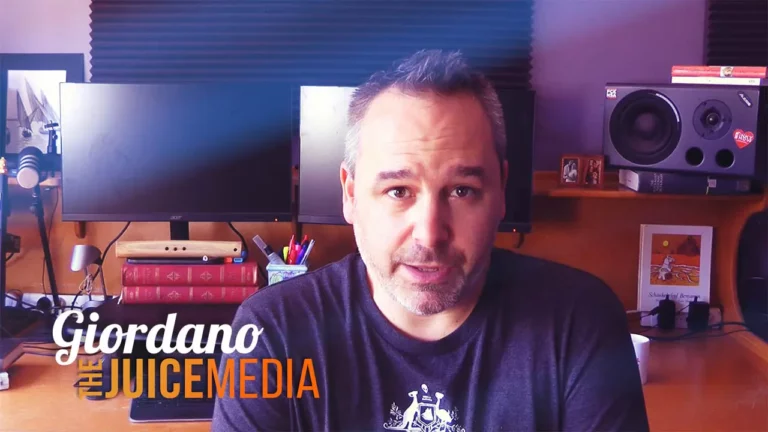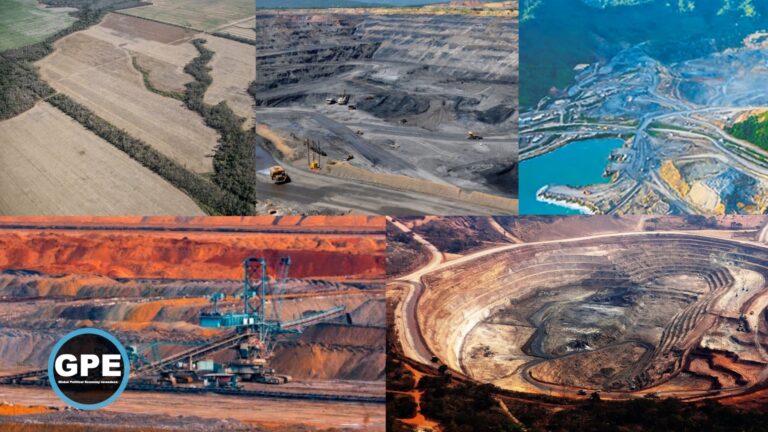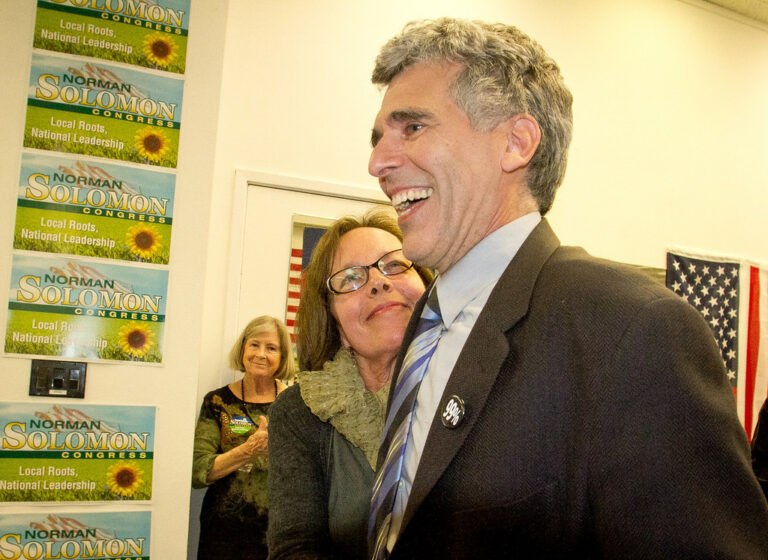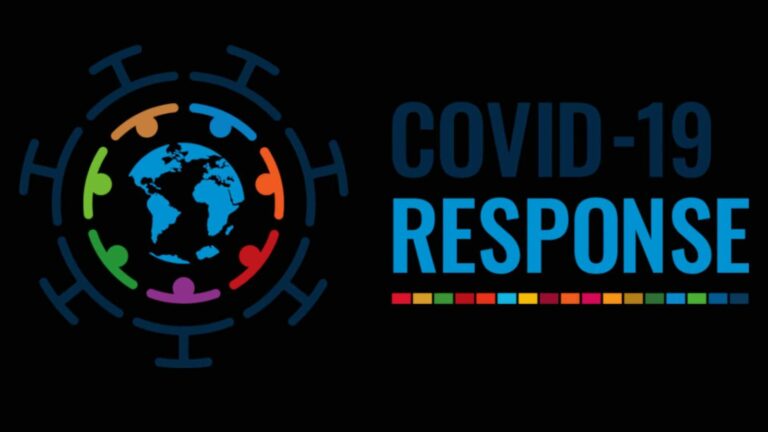Progressive Cathy Kunkel Running for Congress in West Virginia
In a West Virginia district that’s been Republican for 20 years and Trump carried with 68% of the vote, environmental activist Cathy Kunkel is running on a progressive platform including Medicare for All. She might even win. She joins Paul Jay on theAnalysis.news podcast.
Transcript
Paul Jay
Hi, I’m Paul Jay. Welcome to theAnalysis.news podcast. Please don’t forget there’s a donate button at the top of the webpage.
Across the country, in numbers not seen before, progressive candidates are running for office in this election. Many have never run for office before and many are women. And one of them is Cathy Kunkel. She’s the Democratic nominee for Congress in the 2nd district of West Virginia. That’s a district that’s been a Republican bastion for 20 years. As an energy policy expert, Cathy has testified before the West Virginia Public Service Commission and lobbied the legislature to defeat corporate bailouts for electric utilities, defend the state’s rooftop solar laws and strengthen energy efficiency programs.
She’s also co-founded Advocates for a Safer Water System – nb. server missing http://ourwaterwv.org/, a community organization that fought for three years to win improvements to the safety of the drinking water after a chemical spill contaminated the water supply for the Charleston area in 2014.
Cathy is running for Congress as part of West Virginia Can’t Wait, a coalition of dozens of West Virginia candidates who have pledged not to take corporate money in their campaigns. And she moved to West Virginia around ten years ago, if I have it correctly, to do just this: to organize on environmental issues.
And here she is now running for Congress. And not only that, here she is on our podcast. Thanks for joining us, Cathy.
Cathy Kunkel
Thanks for having me. It’s great to be here, Paul.
Paul Jay
So, let me ask you the obvious question to start with, and then we can get into some of the issues: why the heck are you running in a district that has been a Republican stronghold for at least 20 years? In fact, if I understand it correctly, no Democrat even wanted to run in this district. Like, you just said, OK, I’ll do it. And it was an uncontested primary, and I assume uncontested because no other Democrat thought they could win. And, lo and behold, here comes the pandemic — and you actually could win this thing.
Cathy Kunkel
It’s a pretty crazy story. You know, like you said, I moved to West Virginia a decade ago. Certainly, when I moved here I had no intention of ever running for Congress here in the 2nd congressional district or anywhere else, quite frankly.
But I have been very involved in community and environmental issues here over the last decade. And I’ve just been frustrated more and more by the lack of political leadership on energy and economic transition issues here in West Virginia. You know, we’re a state that’s been dominated by extractive industry, by the coal and gas industries, for decades. And we’ve perpetually been one of the poorest states in the country.
Now that the coal industry has been collapsing here for the last decade and going from bankruptcy to bankruptcy, our political leaders from both parties, frankly, just keep making empty political promises about how they’re going to bring back the coal industry. And, you know, my opinion is that we need to be doing something different here. We need to figure out how we’re going to actually manage this transition in a way that is good for working people, that revitalizes our economy here, and that diversifies our economy so that we’re not just a sort of extractive colony for the rest of the country as many have described West Virginia in the past.
And, you know, I decided to run in part out of frustration, in part because it did look like an open field. It didn’t look like anyone else was going to run. And you mentioned in your introduction West Virginia Can’t Wait, this coalition of candidates that came together this year to run on a shared value of not taking corporate money in our campaigns. That was very exciting to me and something that I wanted to be part of. So, I jumped in the race.
You know, at the beginning, we didn’t ‘t know any of this. We didn’t know for sure that there wouldn’t be a primary opponent. We certainly didn’t have any expectation that there would be a global pandemic. But here we are
Paul Jay
Now, if I have the name of the paper correct, the Charleston Gazette, they announced their endorsement just a little while ago. In district one and district three, they endorsed Republicans. And this is a state that’s just been dominated by coal, which has to influence the way that newspaper thinks.
And, that said, they didn’t endorse you, but they didn’t endorse your Republican opponent either, which is kind of like as close to an endorsement you could get. What’s going on there?
Cathy Kunkel
Well, you know, it’s interesting. My opponent is certainly the weakest of the three Republican incumbent congressmen or congresspeople that we have here in West Virginia. And he himself actually was a state senator in Maryland who lost his state senate seat and just moved right across the river into eastern West Virginia to run for and win this this congressional seat when it was an open seat in 2014. He has taken really no steps to kind of ingratiate himself into the Republican establishment in the state. He’s a very absentee congressperson to the point where mayors of large cities in West Virginia have told me that they have never met him.
He just has very little presence in the state, so it’s not really surprising to me that the conservative establishment doesn’t really have any strong rush to try to defend him.
Paul Jay
But you are the Antichrist! Excuse me, but it’s coal. You know, I know your district isn’t all coal country. You’ve got a weird district.
Cathy Kunkel
Yeah, very little of coal country, to be honest.
Paul Jay
I mean, your district is relatively well off and close to Virginia. And one end of it, I guess, is near Ohio. But it’s this isn’t a district that would, you know, tend to want an environmental activist as their rep. But here you go.
Cathy Kunkel
Well, you know, it’s interesting. I mean, the two biggest population centers in the district, one is Charleston, where we had this massive chemical spill six years ago that contaminated the drinking water. And, you know, there’s definitely heightened concerns about drinking water safety here in this area ever since that.
The other population center in the district — the sort of eastern panhandle part of West Virginia, Shepherdstown and Harpers Ferry — has been involved in a big political fight there for the last couple of years over a factory that the state has tried to bring into that area, much against the wishes of the majority of the residents of that county.
And there’s been a big political battle over that. It’s kind of become a local environmental justice fight with concerns about potential drinking water contamination in that area, too. So, there might be more concern for these issues than people stereotypically think in West Virginia.
Paul Jay
Well, on the environmental issue and water issue, the spill issue. But how much of your campaign is about climate change? Because that raises the issue of phasing out of coal. And as you said in the beginning, how do you transition?
I mean, let me ask this. Do people get that coal is going to go, one way or the other? It’s just a question of sooner or later — and there needs to be a real conversation about transition — or do people still think they can hang on to coal?
Cathy Kunkel
Well, I mean, that’s the conversation that we’ve been trying to have in this campaign. And I do think that the conversation has been changing over the last decade. It was predicted a decade ago that the coal industry was going to be collapsing here in West Virginia and that’s exactly what we’ve seen. And it has had very little to do with environmental policy, quite honestly. It’s had to do with cheap natural gas and renewable energy that’s been taking away market share from coal and power generation.
And, you know, every election season, we have political candidates who make empty promises about bringing back coal. Of course, Trump famously came in here in 2016 and said he was going to bring the mines back. He hasn’t been able to do it either. And I think people are — obviously not everyone — but I think there is a growing recognition that this transition is happening and that we need to do something about it.
I mean, it’s not just enough to say that the coal industry is declining here. We have to talk about what are we going to do to bring in new jobs and to really repair and build the infrastructure that we need for a more diverse economy here. Because we have broad sections of the district, broad sections of the state that don’t have reliable internet. Safe drinking water is a concern in a lot of different parts of West Virginia. And there’s billions of dollars of work to be done and thousands of jobs to be had in environmental reclamation, in putting some of these abandoned mine sites back to use and cleaning them up.
So, those kinds of narratives and ideas, I think, are things that people can get behind. We all know that there’s a lack of economic opportunity here and that if we keep on staying the course and, you know, promising the return of the coal industry, that’s not going to happen. We’re not going to get any better here.
Paul Jay
I want to talk more about that. But let’s stay on some of the political stuff first. How did Trump do in your district in 2016? How is he doing now? And how much are you finding when you’re out talking to people that even your race is kind of a referendum on Trump? Or is it more locally focused?
Let’s start with a little background on, How Trumpian was this district?
Cathy Kunkel
Trump won about 68 percent in 2016.
Paul Jay
So, that’s a lot.
Cathy Kunkel
Yes, yes — you know, significant. And he is down by about ten to twelve points in the polls, so, you know, down around 57 percent. So, if that holds, that’s a significant difference, obviously. And back in 2016, my opponent, Congressman Rooney, won with 58 percent of the vote, again, in a district that Trump won with 68 percent.
So, he tries his hardest to run on Trump’s coattails. That is kind of his central campaign message, that he’s pro-Trump. But, you know, there’s only so much that he can do to compensate for the fact that he has really done nothing for the district here in the last six years and, you know, is not around, doesn’t have in-person town halls, doesn’t debate, and is a very, as I said before, a very absentee congressperson. So, I think if Trump’s coattails are shorter this year, that’s a real problem for him.
Paul Jay
And what are you hearing from people that voted for him? You know, obviously a bunch have decided, according to the polling at least, not to do it again.
But from people that are planning to do it again — like, your district, you know, sometimes people that vote for Trump are depicted as “didn’t go to university; sort of less educated,” which actually isn’t true. The majority of Trump voters are actually relatively well-off and just don’t like paying taxes or they’re religious.
But yeah, a section of the working class and poor that never voted Republican before did get attracted to Trump. But in your district, the demographic is a little more affluent, if I’m correct? And what are these people saying?
Cathy Kunkel
It’s not particularly affluent. I mean, maybe it’s more affluent than southern West Virginia, but that’s got to be probably one of the poorest congressional districts in the country. So, you know, we’re a poor state and it’s still a relatively poor and working-class congressional district.
Paul Jay
OK, so what are people telling you?
Cathy Kunkel
Yeah, I do run across people who have voted for Trump in the past and some of whom even plan to vote for Trump again and are also voting for me. And a lot of the reason for that is really more to do with the failings of the current congressman than anything related to Trump. And, you know, we’ve really made an effort to focus this race on issues that matter to West Virginians: health care, infrastructure investment, public education funding, all these things that are really affecting working families in the district and where, quite frankly, both political parties have not fought very hard for working families over the last couple of decades.
You know, I’m a supporter of Medicare for All, which is not the mainstream, even within the Democratic Party. So, I think that I’ve heard people say that they’re voting for Trump, but they don’t like my opponent because he doesn’t do anything for them. So, those are the kinds of voters that we’re hoping that we can win over here.
Paul Jay
And help us understand those people that are going to vote for Trump again, especially ones that are willing to vote for you. I understand they’ve got a passive Republican there. But if you vote for Trump, in theory, you’re buying into a lot of that ideology: the hatred of the left, the hatred of socialized medicine and socialism, and on and on. What are you actually hearing from people?
Cathy Kunkel
Yeah, I mean, I think a lot of people do not vote about policy issues or, you know, on ideological grounds quite as much as you or I might think. I think there are a lot of people for whom Trump’s attitude appeals to them. You know, they want someone who hasn’t been a career politician or who is able to sell himself as anti-establishment, which is, I would argue, inaccurate. But he certainly has managed to sell himself as anti-establishment. And there’s a lot of anti-establishment feeling here in West Virginia.
And I think, you know, for good reason. I mean, we’re one of the states that, like a lot of rural America, has really been left behind by both parties over the last couple of decades. We can talk all day about rising inequality in this country and the fact that wages for working-class Americans have basically stagnated for the last 40 years. There’s a lot of that in West Virginia.
Paul Jay
So, let’s talk about coal. What’s your vision, then, of what happens with coal? What does the transition look like? And if you go to Congress, what are you going to be fighting for?
Cathy Kunkel
A first step has got to be infrastructure investment. I mean, that sounds boring, but it’s hard to imagine how you can really bring in small businesses or light industry or even just people to move to an area that can’t provide reliable internet or safe drinking water in the 21st century. Broadband internet is the single biggest issue that has come up in this campaign from constituents across the district, and well before the pandemic.
I understand that. You have someone who moves back to the state, a young woman who wants to run her video production business where she grew up. And obviously that’s very difficult if you don’t have reliable internet. And that story is multiplied a hundred times across the state. So, I think federal infrastructure investment is key. Environmental reclamation is key: cleaning up water pollution, the environmental degradation, the coal ash ponds, all of that. There’re thousands of jobs to be had in that.
And then we can talk about how we can diversify and grow other strengths that West Virginia has but hasn’t really leaned on very much, like tourism and agriculture and just being able to work from home in West Virginia and work remotely in D.C. A lot of the district is quite close to Washington, D.C. and that’s a growing population. And I think perhaps as a result of this pandemic, we may have more interest in people living in places like West Virginia.
Paul Jay
Well, how has the pandemic affected West Virginia? How badly hit? And this issue of finding it difficult to work from home? How is that going to work for people?
Cathy Kunkel
Yeah, no, I mean, it’s a real challenge. And one of the big challenges, of course, has been with back-to-school this fall, which we weren’t particularly prepared for. I’ve heard stories of students having to drive an hour to sit in a parking lot to download their assignments for school, which is just ridiculous. And our students are getting left even further behind here.
In terms of the pandemic more broadly, our cases are on the rise. We’re a relatively rural state, so we haven’t obviously been as hard hit as major cities. But it is a growing problem here, where I don’t know that we ever really got out of the first wave. I feel like we’re in a slowly growing wave for the last couple of months.
Paul Jay
Now being such a pro-Trump state and pro-Trump district, how has that affected people? I mean, are people wearing masks?
Cathy Kunkel
It really varies across the state. I mean, there was a lot of resistance to it at first, which I think came directly from our president’s dismissal of that whole idea. It’s certainly, I think, been catching on more. I think especially in rural areas, they thought that the whole thing was just kind of overblown. But at the same time, unfortunately, as the pandemic expands and more people are directly affected by it, I think that attitude has been declining over the last few months.
Paul Jay
I hate to go back to Trump again, but it’s hard to talk about COVID and not get back to Trump. It was such a complete disaster, the way he treated the crisis — in denial. You know, it’s very similar to climate denial, I think. It’s a real attitude of anti-science — for reasons that are clear. Especially on climate, it’s very profitable to be anti-science if you’re getting money from the coal industry, which Trump does.
But in terms of the people you’re talking to, how do they get their heads around what a disaster he’s been on the pandemic? And what that’s going to mean. You know, the more the economy slows down, very likely it’s going to have to be more closures. And I know they’re claiming they’re not, but the way the pandemic’s out of control in many parts of the United States, a lot of epidemiologists are saying there’s going to have to be another major closure of the economy. Are people aware of all this?
Cathy Kunkel
I think people certainly see how the pandemic has affected their families and their communities. And the economic downturn has been pretty harsh here in West Virginia. I mean, we’re a poor state to begin with. I’ve been volunteering at a food pantry for the last several months and it’s very clear that demand for basic necessities like food is certainly up during this pandemic. Our campaign continues to run into people who have had major problems with the unemployment system in West Virginia or are struggling with evictions.
So, you know, the need for economic relief package is severe here. And yeah, I think people are frustrated with Congress’s lack of action on that, to be sure. The reality is that we’re not going to — our economy is not going to pick up until we get this virus under control. I mean, people are not going to resume their normal habits until they feel safe doing so. And that’s, I think, a reality that I hope more and more people are realizing, especially members of Congress.
Paul Jay
You’ve mentioned a couple of times during the interview so far that it was the leadership of both parties that has really failed West Virginia. How is the leadership of the Democratic Party treating your candidacy? Are you on their radar? I guess the local party, obviously you are. Are you getting any money or are you getting any help? Are you getting any opposition?
Cathy Kunkel
I haven’t gotten any opposition internally. You know, the national Democratic Party has written off West Virginia — not just me, but in general. I think they have priorities that are elsewhere, unfortunately, and have for a while. You know, we’ve gotten some great support from local, county-level Democratic committees across the district. I think the state party is kind of more focusing on state-level races like the governor’s race and that kind of thing.
So, you know, it’s kind of been…I don’t know; not a whole lot to say about it, honestly. [Laughs.]
Paul Jay
So, you’re kind of off their radar because they figure you don’t have any chance of winning. And now, like maybe you do, but I guess they figure the House really isn’t in play anyway. So, they have other things to focus on.
Cathy Kunkel
Right.
Paul Jay
But if you do win, it’s going to be a fascinating tale of your relationship with the people of District 2.
Talk a bit about some of the environmental issues you’ve been involved with. Start with this issue of defeating corporate bailouts for electric utilities and what’s happening with coal and such?
Cathy Kunkel
Absolutely. Yeah. So, one of the things that I was involved in for several years: both of our major electric utilities in West Virginia, which are American Electric Power and First Energy, both we’re trying to get citizens of West Virginia, their rate payers, to essentially bail out uncompetitive coal plants that were losing money in the competitive power markets. And that is a direct reflection of the downturn in the coal markets and the fact that more and more electric utilities are turning to natural gas and renewables and driving coal out of the market.
We fought several battles along those lines related to multiple coal plants and won one of them and didn’t win another one. But I think it certainly also opened my eyes to the power of the utility lobby in the state and, of course, the coal industry lobby. And I think that it’s hard to underestimate the power of those industries in terms of not only the money that they throw around in elections, but also the lobbying influence and the political influence that they wield in regulatory agencies, too.
Paul Jay
And a lot of influence within the West Virginia Democratic Party leadership. Is that not right?
Cathy Kunkel
Yeah. The Democratic Party in West Virginia — I think people outside of the state may not realize this, but West Virginia is historically a very Democratic state in the sense that the Democratic Party controlled our state legislature for more than 80 years. From the New Deal era — from the 1930s — until 2014. And so, you know, it’s no surprise that the Democratic Party became very caught up in the politics of coal and very much was a backer of the coal industry during that time to maintain their political power in the state.
So, you know, when people are frustrated with the Democratic Party, looking at the fact that West Virginia has perpetually been one of the poorest states in the country and perpetually taken advantage of by out-of-state corporations, you know, I can sympathize why people are frustrated with the Democratic Party here.
Paul Jay
And what do you say when they accuse the Democratic Party of being guilty of helping to create the poverty, really, in West Virginia?
Cathy Kunkel
To me, it’s an argument for West Virginia Can’t Wait and a for candidates that are not beholden to industry, whether it’s the coal industry or anything else. Candidates who are going to be unapologetic in fighting for policies that working families need, like universal health care, like funding for public education.
I mean, another great example of this is that we’ve had these massive teacher strikes in West Virginia over the last couple of years. And one of the big demands has been around funding for public employee health insurance. Over the last decade, West Virginia passed major corporate tax cuts at the state level and essentially financed those by cuts to public education and cuts to, among other things, the public employee health insurance program. So, you can see very clearly what happens when you have political leadership that’s more interested in catering to corporate interests than to the public at large and we saw West Virginians rebelling against that in the strikes.
Paul Jay
And that was really interesting, the teacher strike, because, you know, the state, which is so pro-Trump and in theory would be so anti-union, but in fact, the teachers actually got quite a bit of support.
Cathy Kunkel
Yeah, there was an incredible level of community support. And West Virginia also has a very strong labor history. When I was down at the capitol during the strike, just, you know, walking around and talking to people about why they were there, a lot of the teachers referenced their family history in labor unions. Like, Oh, my grandpa went on strike in the mines. Or, My father was on strike in the steel mills. And, you know, there’s a real strong sense in West Virginia that you don’t cross a picket line. So, people’s politics are a lot more complicated than just boiling it down to, Did they vote for Trump or not?
Paul Jay
Yeah, in the 1930s, West Virginia was a center of very militant mining unions. Do you have a handle on what happened? How do you go from such militant progressive mining unions to a majority for Trump or the Republican Party?
Cathy Kunkel
Some of it has to do with the decline of the labor movement, obviously, nationally over the last many decades and the fact that there was a deliberate attempt to purge labor unions of their more radical leadership starting in the in the ’40s or ’50s, I believe. It certainly has played out for negative consequences for the labor movement as a whole. And, yeah, I mean, I think it just it goes back to West Virginia being more of an anti-establishment state.
I mean, when the Democratic Party is kind of not offering any real alternative to economic poverty here, people turn to the Republican Party, which, of course, didn’t offer any real solutions either. But, you know, people are, I think, just frustrated here. And you saw that in voting for Trump. You saw it in the fact that Bernie Sanders won every county in the Democratic primary that same year.
And you saw it in the teacher strikes. We had thousands of teachers in our capitol chanting about raising taxes on the gas industry to fund public education and public employee health insurance, which is not the kind of demand that would have come out of either of our relatively corporate parties here in West Virginia.
Paul Jay
How did Obama do?
Cathy Kunkel
Honestly, I don’t remember. [Laughter] He didn’t win West Virginia, but I don’t remember what the margin was.
Paul Jay
Now, these teachers, you know, they have families, their friends, their extended families. As you say, it’s very complicated, the politics, because people really supported the demand of the teachers, which was to a large extent for smaller classrooms and more resources for the kids.
And also put this together with something you said: that some people that are voting for Trump are voting for you, and you’re advocating Medicare for All, universal health care. Do you find people support that policy, but they can still vote for Trump just because they like something about the guy’s personality, which is a little weird, but I see why people might.
Cathy Kunkel
I don’t know that I’ve ever had a conversation that gets into that level of policy detail with someone. You know, as I said, I know folks who are voting for me and also for Trump, but I don’t know if it’s that they specifically support Medicare for All or they’re just kind of willing to go along with it, and maybe it’s a good idea, but they just really don’t like Congressman Mooney.
But I think, writ large, Medicare for All is a popular idea here in West Virginia. Remembering back to Bernie’s 2016 campaign, that was really the core issue that he lifted up and campaigned on, at least when he was here in West Virginia. And so that was, you know, very popular when he was campaigning on it here. Everyone I know in West Virginia, practically, has a health care horror story of themselves or someone in their family struggling to access the health care that they need. Medicare for All, I think, if explained to people, is a popular idea, I mean, no one is a huge defender or very few people are huge defenders of the private insurance industry.
Paul Jay
How powerful is evangelical Christianity in your district, in the state? How much of that makes up Trump’s support?
Cathy Kunkel
I mean, it’s certainly there. You know, West Virginia is not in the Bible Belt nearly to the extent of other states to our south, though.
The issue of abortion, though, is certainly one that for some people, it’s their deciding issue when they go to the polls and vote. But, you know, we had an anti-abortion referendum on the ballot here in West Virginia in 2018. And it really won by a much narrower margin than people thought. I think it was like 51 to 49, or something. So, you know, it’s a little less of that than you might think.
Paul Jay
Are people talking about the Supreme Court at all?
Cathy Kunkel
Not in, like, everyday conversation. I mean, you know, I certainly am. And I’m alarmed that we could have a Supreme Court that takes away health care for millions of Americans during a pandemic. I mean, I think that’s completely insane. But it’s not a conversation that that I hear a whole lot or that I get asked about a whole lot.
Paul Jay
So, if you win and you’re off to Washington, I guess you start allying with some of the other progressive congresspeople. How do you see this fight within the Democratic Party taking place? Because a lot of people who supported Sanders are voting against Trump. They’re not certainly voting for, you know, what they call “corporate Democrats.” And people are saying that, you know, the real battle is going to break out once Biden wins, assuming he wins. Once he’s in office, this temporary truce between the left and progressive sections of the party [sic, corporate and left-progressive sections] will be over.
How do you see that playing out? And if you’re there, how do you see your role in it?
Cathy Kunkel
There’s a lot of hypotheticals in that, right?
Paul Jay
I think there were nine “ifs.” [Laughter.]
Cathy Kunkel
Right. So, you know, it’s a little hard to answer in that sense. But, I strongly think that we need to defeat Trump here in a couple of weeks. I mean, I think that — yeah, I probably don’t need to say more on that.
It all depends on how many folks are elected who are coming out of the more sort of Bernie Sanders wing of the party, the folks who are not taking corporate contributions in their campaigns. And we’ll see how big of a caucus that becomes within the House.
But, you know, I think these ideas have real potency, and there are growing social movements to fight for things like Medicare for All and action on climate change. That’s not going away. It’s unclear now what the balance of forces around that is going to look like in January. But certainly, the folks who have brought those ideas forward are not going anywhere and the ideas themselves, you know, seem to be pretty popular in the general public and so we’ll see.
I’m certainly going to be fighting for the issues that have been in our platform since the beginning, which include Medicare for All and debt-free public education and action on the climate crisis.
Paul Jay
So, I get that in your district, it’s very locally focused and it’s less a referendum on Trump than it is about the incumbent who doesn’t seem to know how to find the district in his travels.
But this issue of Trump is a big issue, and he’s down in the polls in West Virginia. What do you say to people who actually might be on the fence about this election? They don’t much like Biden. They are getting sick of Trump, but they’ve been with Trump. They don’t know whether to leave him. What do you say?
Cathy Kunkel
I mean, if I’m just speaking for myself in terms of our election, I would just focus on our race and the fact that I’m not taking corporate money. And we’ve seen time and again that the establishment of both political parties is not really fighting very hard for working people and is more interested in lobbyists and donors. And that’s certainly the case with my opponent. So, you know, that’s kind of the pitch that I make to people.
You know, Trump is going to win here in West Virginia. And that’s really not the battle that we’re fighting in this campaign. We’re just trying to get elected here on a platform that supports working people and that builds the West Virginia Can’t Wait movement to continue to run candidates here in West Virginia who are really going to change the narrative away from what it’s been in both parties.
Paul Jay
All right. Well, thanks very much for joining us, Cathy. And let’s talk again after the election.
Cathy Kunkel
Sounds good.
Paul Jay
So, you’ll either be — I don’t know: is it “congressperson” or “congresswoman?” What do they say these days?
Cathy Kunkel
Congresswoman, congressperson, whichever you prefer. Or I’ll be unemployed. [Laughter.]
Paul Jay
All right. Well, we’ll talk again after that. Thanks for joining us.
Cathy Kunkel
Of course. Thanks, Paul.
Paul Jay
And thank you for joining us on theAnalysis.news podcast. And again, don’t forget the donate button if you haven’t done it yet. And thanks for listening.
Podcast: Play in new window | Download
